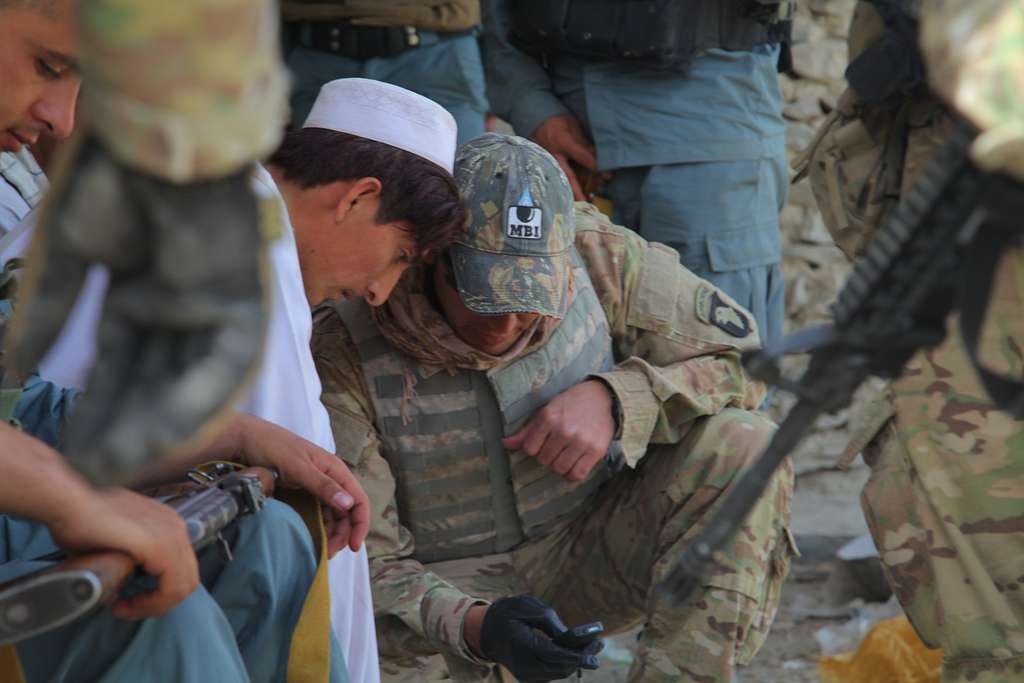Van Hollen/Connolly Draft AUMF
Reps. Chris Van Hollen and Gerry Connolly have put forward another draft Syria force authorization. Here are some of the bill's key provisions, beginning with the authorization itself:
SEC. 2.
Published by The Lawfare Institute
in Cooperation With

Reps. Chris Van Hollen and Gerry Connolly have put forward another draft Syria force authorization. Here are some of the bill's key provisions, beginning with the authorization itself:
SEC. 2. AUTHORIZATION FOR USE OF UNITED STATES ARMED FORCES.(a) AUTHORIZATION.—Subject to the limitations set forth in this joint resolution, the President is authorized to use the United States Armed Forces to prevent and deter the further use of chemical weapons in Syria or by Syria against any other group or country(b) LIMITATION.—The authority granted in sub-section (a) excludes the authority to deploy United States Armed Forces on the ground in Syria except with respect to efforts to rescue United States personnel.
There's also this oddly phrased, two-part sunset mechanism:
SEC. 3. SUNSET.(a) IN GENERAL.—Subject to subsection (b), the authority granted in section 2(a) shall expire upon the conclusion of each military action conducted by the United States Armed Forces beginning after the initial military action conducted by the United States Armed Forces, unless the President certifies to Congress in writing with respect to such subsequent military action that the President finds with high confidence that Syria has used chemical weapons since the conclusion of the immediately preceding military action conducted by the United States Armed Forces.(b) FINAL SUNSET.—Notwithstanding any other provision of law, the authority granted in section 2(a) shall expire on the date that is 60 days after the date of the enactment of this joint resolution.
Lastly, I note that the preamble to the bill includes---like the SFRC's draft---certain congressional "whereas" findings. However, the Van Hollen/Connolly proposal here pointedly does not state, as the SFRC's proposal did, that the President has freestanding constitutional authority to use force, in order to defend the United States' "national security interests." To be sure, the Van Hollen/Connolly bill, like the SFRC bill, notes that in 2003, Congress found that Syria's acquisition of WMD threatened those very interests. But the Representatives' proposal nevertheless stops short of suggesting, a la the SFRC draft, a broad basis for unilateral presidential action. Instead, and to the contrary, the bill touts the need for "unified action" by the legislative and executive branches.
Wells C. Bennett was Managing Editor of Lawfare and a Fellow in National Security Law at the Brookings Institution. Before coming to Brookings, he was an Associate at Arnold & Porter LLP.
More Articles
-

The White House Can’t Accept Russia’s Annexation of Crimea Without Congress
President Trump may be able to recognize Russian sovereignty over Crimea—but that doesn’t mean he can make Congress play along. -

When Did the Betrayal Begin?
The United States’s Afghan allies are the victims of strategic narcissism. -

Pirates, Privateers, and Cartels: Why Profit-Driven Policing Backfires
Reviving the letters of marque would undermine U.S. legal norms, create diplomatic instability, and risk unintended escalation.





